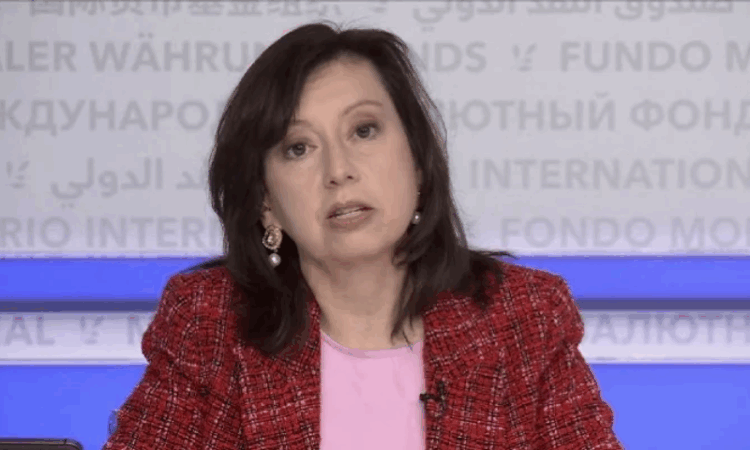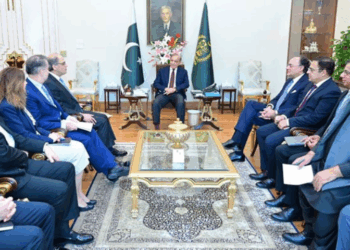Islamabad, May 23, 2025: The International Monetary Fund (IMF) on Thursday firmly defended its latest disbursement to Pakistan under the Extended Fund Facility (EFF), dismissing Indian concerns that the funds could be misused.
The IMF Executive Board approved a $1.4 billion loan for Pakistan on May 9, as part of its climate resilience initiative, and also completed the first review of the broader $7 billion programme, unlocking nearly $1 billion in immediate disbursements.
“The Board approved the disbursement after finding that Pakistan had met all performance targets and made progress on structural reforms,” said IMF spokesperson Julie Kozack during a press briefing.
She clarified that IMF funding is directed exclusively to Pakistan’s central bank and is intended to address balance of payments needs, not to finance the budget or military activities.
“There are also strict safeguards in place,” she added, noting measures such as a zero limit on central bank financing of the government and a renewed focus on fiscal discipline and transparency.
In recent weeks, India had voiced opposition to continued international financial assistance to Pakistan, citing concerns that funds could potentially be diverted to activities hostile to Indian interests. Following a deadly April attack in Indian Illegally Occupied Jammu and Kashmir (IIOJK), tensions between the two nuclear-armed neighbours have sharply escalated.
India had reportedly requested the IMF conduct a broader review of its lending to Pakistan and objected to continued support, particularly in light of the Kashmir incident, which claimed 26 lives. India also reportedly sought the removal of its executive director from the Fund. However, Kozack declined to comment on internal personnel decisions, saying such matters are at the discretion of individual member states.
“Our decisions are based on economic criteria and performance reviews,” Kozack reiterated.
She closed her briefing by offering condolences for the lives lost in the recent tensions and called for a peaceful resolution to regional disputes.
In a statement following the May 9 approval, the IMF said:
“Pakistan’s policy efforts under the programme have already delivered significant progress in stabilising the economy and rebuilding confidence amidst a challenging global environment.”
So far, Pakistan has received $2 billion under the programme. While no additional funds from the climate resilience component were disbursed immediately, the approval signals renewed confidence in Pakistan’s reform trajectory.
In a related development, a senior official in New Delhi told Reuters that India would escalate efforts to block financial support to Pakistan at multilateral forums, including the World Bank and the Financial Action Task Force (FATF).
“India will not miss any opportunity in opposing Pakistan. The next one is World Bank funding, and we will raise our protest there too,” the source said.
India is reportedly urging FATF to re-add Pakistan to its “grey list”, which imposes closer scrutiny on countries accused of lax oversight in combating terrorist financing.
Islamabad has strongly denied any involvement in the Kashmir attack, and the Foreign Ministry has criticized India’s suspension of the Indus Waters Treaty, calling it an act of war.
Pakistan was removed from the FATF grey list in 2022, a move that significantly improved its credibility with global lenders—vital for a nation grappling with high debt, inflation, and foreign exchange challenges.
The Finance Ministry in Islamabad has not yet issued an official comment on the latest IMF statement or India’s reported efforts.








